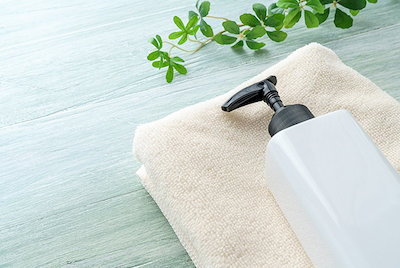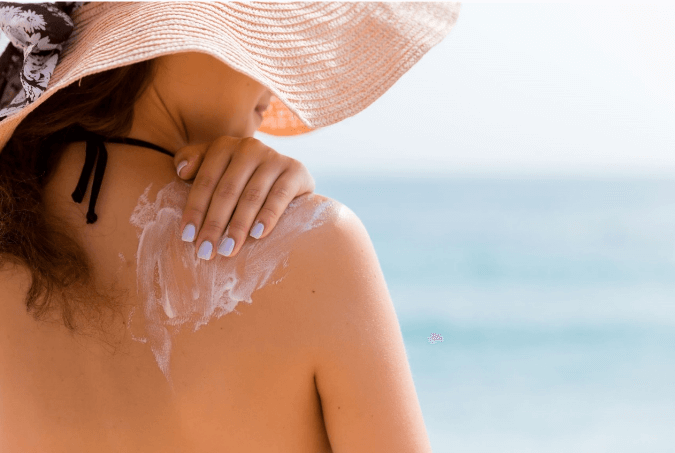With all of the different resources online, you may think that you know everything there is to know about your skin. However, many common recommended or "approved" skin care facts can actually be quite damaging to your skin's health. Below are ten of the most common misconceptions when it comes to your skin:
-
1. You don't need sunscreen if it isn't sunny
- Even if the sky is gray and cloudy and you are not feeling sun rays directly hitting your face, your skin is still exposed to UVA and UVB rays. You can still get sunburned if you are not careful on a cloudy day. Overtime, if you do not protect yourself you will see signs of sun damage including dark spots and wrinkles.
- Always be sure to apply sunscreen or a moisturizer with SPF 15 in it on cloudy days, and if possible wear SPF 30 for the best coverage.
-

2. You don't need to moisturize if your skin is naturally oily
- One myth about skin problems is that if your skin type is oily, it is okay to skip using a moisturizer in your daily routine. However, using a moisturizer protects your skin from environmental effects including pollutants and UV rays that can break your skin barrier. Without using a moisturizer to protect your skin, these factors can end up irritating your skin more and causing an increase in oil production to combat them, making your skin shinier.
- For oily skin, using a water based product is best for lightweight and effective hydration.
3. Washing with hot water is best for your pores
- If you are using hot water to wash your face, you are also stripping your skin of its natural oils and moisture. There is no added benefit to using hot water, and if it is turning your skin red after washing, you need to bring the temperature down.
- If you are looking to find another way to open up your pores, try using a clean, damp, hot towel in the shower.
-

4. Vitamin E fades scars
- One of the biggest skin care myths that has been around for at least a century is the popular belief that Vitamin E can fade scars. Even though many will claim they see benefits, there is no scientific evidence that proves there is any improvement with scar healing from Vitamin E.
- If you are looking into removing a scar or helping the appearance of one, your best option is to call your doctor or dermatologist and see what treatments they can provide to you.
5. Higher SPF is better
- Bigger is always better right? In terms of SPF this is not necessarily true. Once you reach SPF 30, anything higher is not significantly more effective. One skin fact you should know is that SPF 30 blocks 97% of UV rays. So, unless you are out in the sun for more than four hours there is no reason to wear anything higher.
-

6. "Natural" or "Chemical Free" is better
- Depending on your skin type and the products that you are using, natural products may not be the best for you. Certain skin types and conditions require the chemicals found in dermatological products to help heal the skin. Additionally, when products are natural, they contract mold and bacteria much faster than regular products.
- Pay a visit to your local dermatology pharmacy to browse products that appeal to you. If you choose the natural route, pay close attention to your products' expiration dates to be sure you aren't using moldy skin care products.
7. More exfoliation is better
- One skin care routine myth is that constant exfoliation is great for your skin. Because exfoliating gets rid of the dead skin cells on your face, and creates a glowing complexion you should be doing it all the time, correct? Actually, incorrect! In fact, over-exfoliating can irritate your skin cell barrier making it more susceptible to infection, redness, and free radicals.
- Each individual can handle different amounts of exfoliation depending on their skin type. Some can handle daily exfoliation, but others can only do it once a week without seeing irritation. Pay attention to how your skin reacts to determine the amount of exfoliation you need.
-

8. Sleeping in makeup is okay
- We all know that it isn't the best, but sleeping in makeup is okay just once in a while right? Nope it is not! Just one night of sleeping in your foundation, blush, and mascara will mix with the dirt and oil that has collected on your skin throughout the day. This will lead to clogged pores and breakouts.
- Using makeup removing towelettes or micellar water makeup removers are an easy solution that will get rid of the makeup easily and effectively.
9. You do not need an eye cream if you are young
- The area around your eye ages 5-10 years faster than any other area on your skin. There is a lack of collagen in this delicate area so every time you smile, frown, or squint the fibers breakdown. So, it really is never too early to be proactive and take preventative measures against this sign of aging.
- Eye creams that contain collagen and hyaluronic acid work to reduce the look of dark circles, puffiness, and fine lines. Apply it morning and night for the best results.
-

10. If it burns, its working
- Certain products you are using may create a bit of a tingling or stinging sensation. However, if you are experiencing pain from burning in any way, immediately remove the product. This may be a sign that your skin is too sensitive for the product, or it could be an allergic reaction to one of the ingredients inside the product.
- If the pain is lasting longer than a few minutes, contact your dermatologist to find a solution.
Before implementing any new step into your skin care routine, be sure to conduct thorough research and speak with your dermatologist so you know exactly how to go about using the product instead of falling into traps like the above misconceptions.

